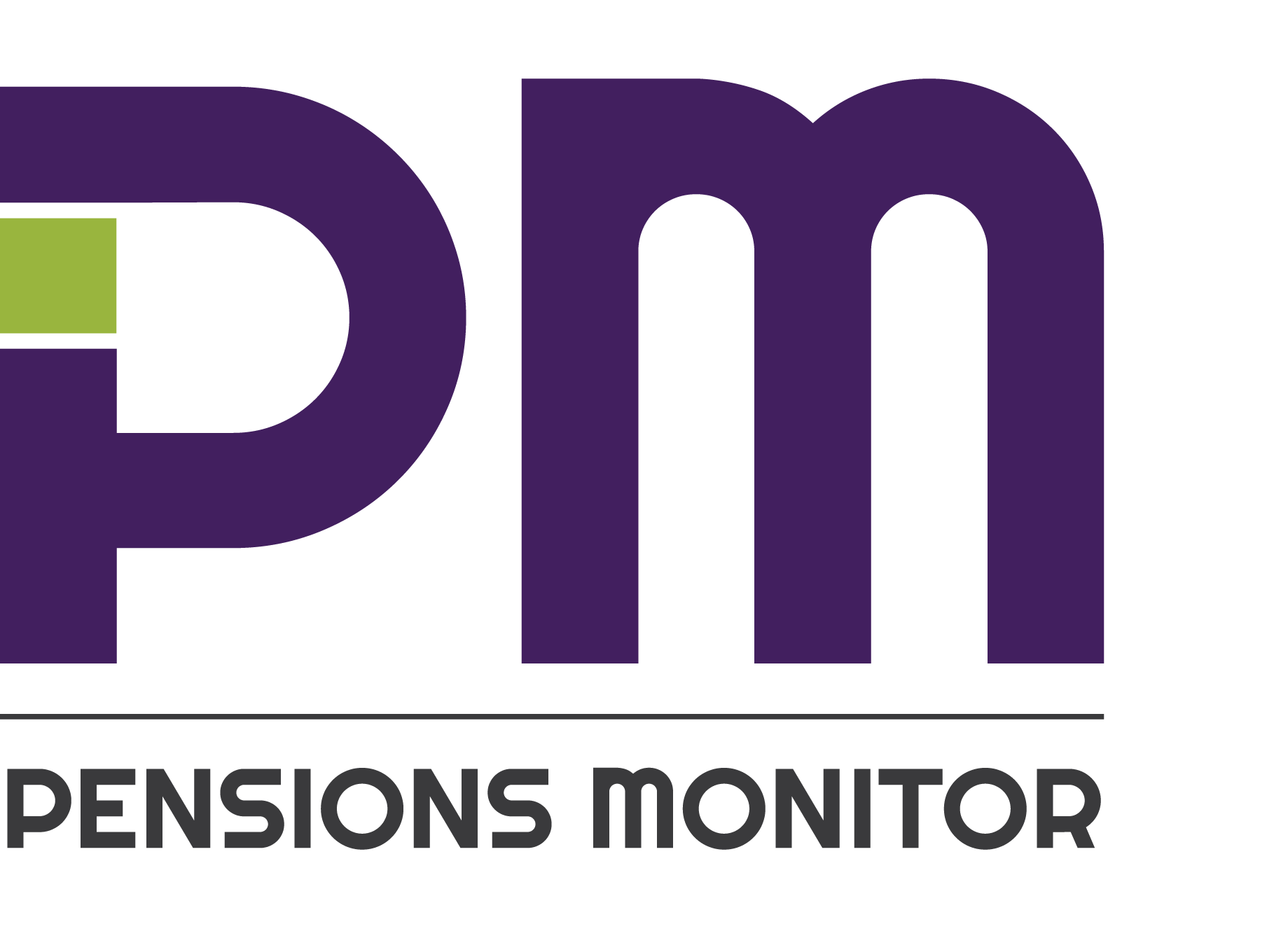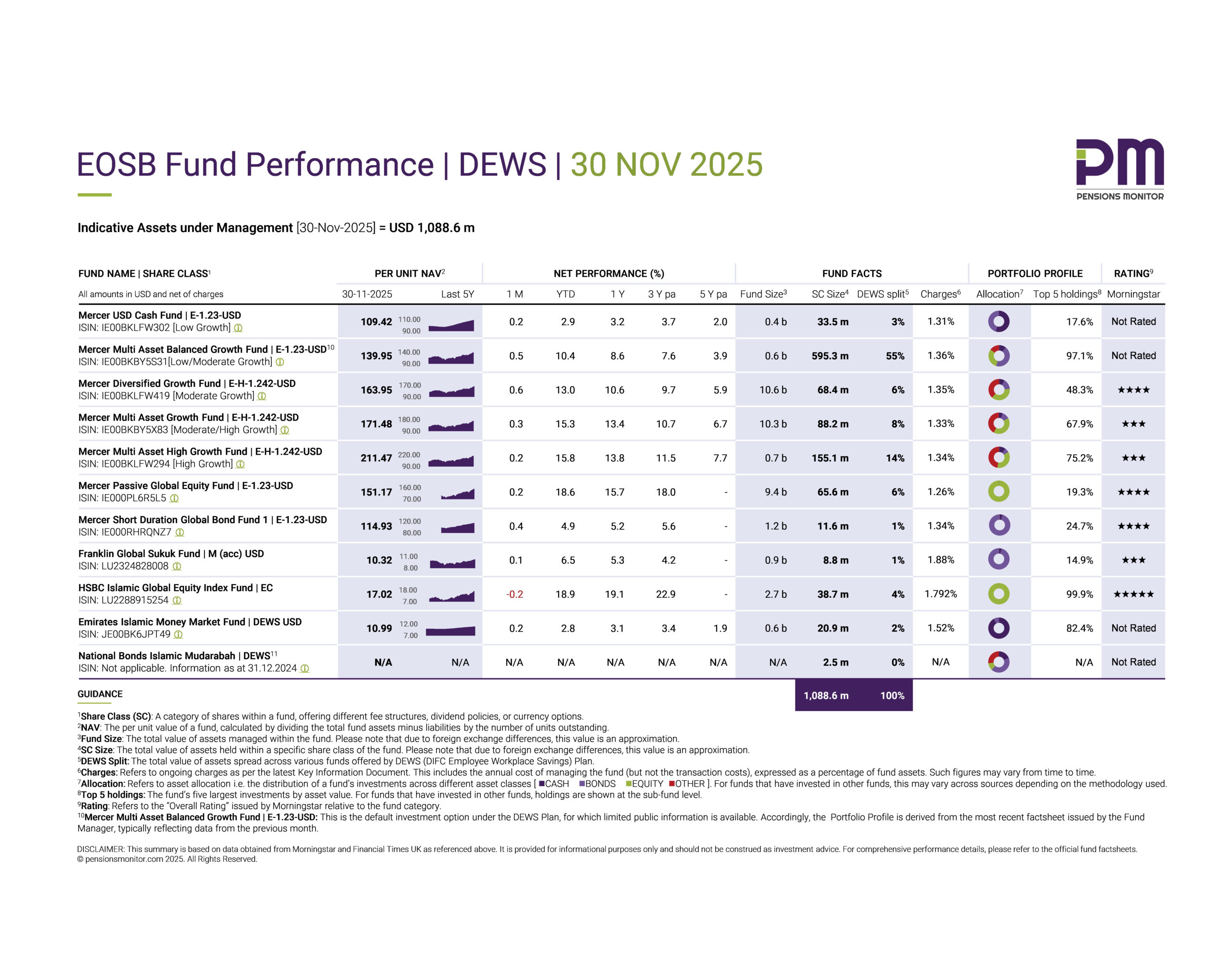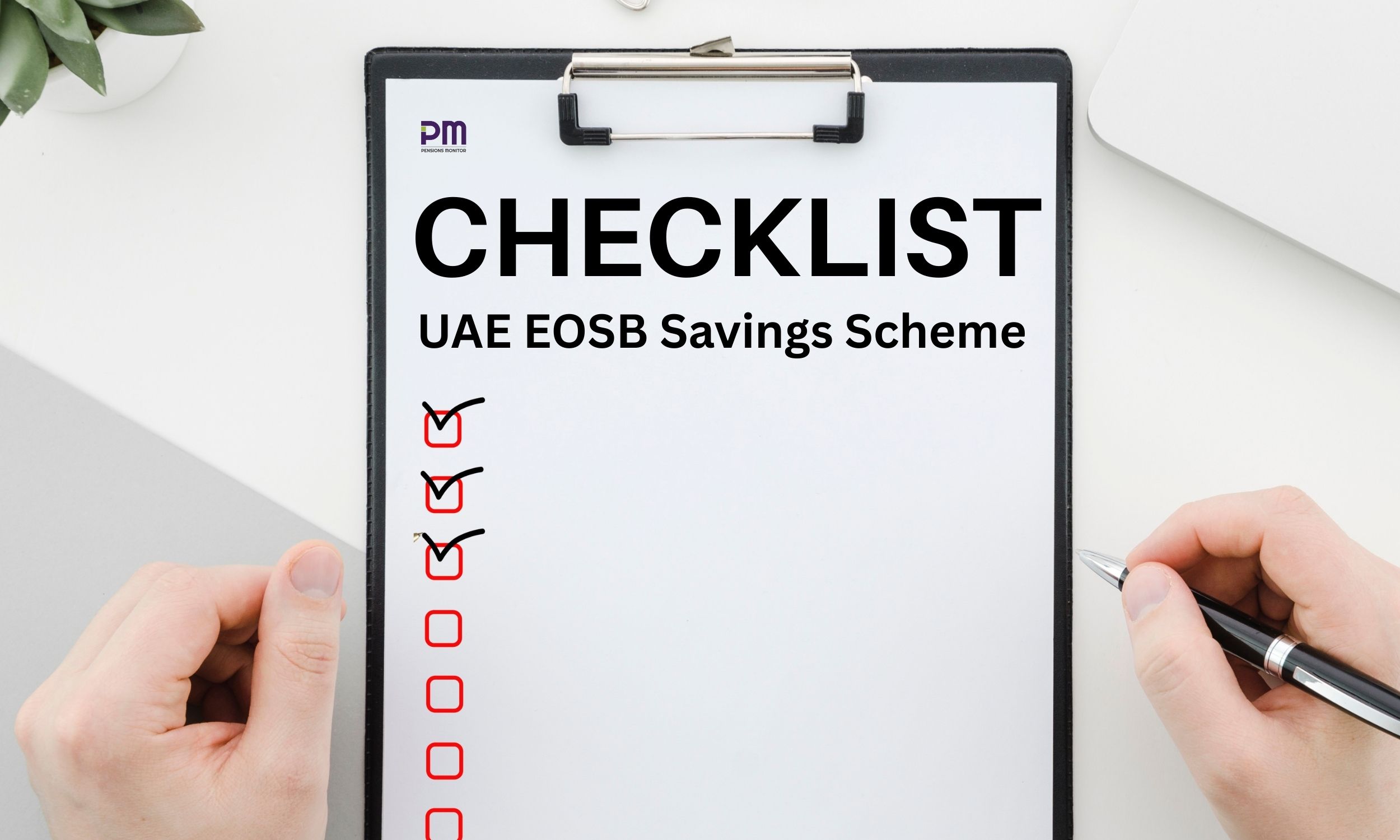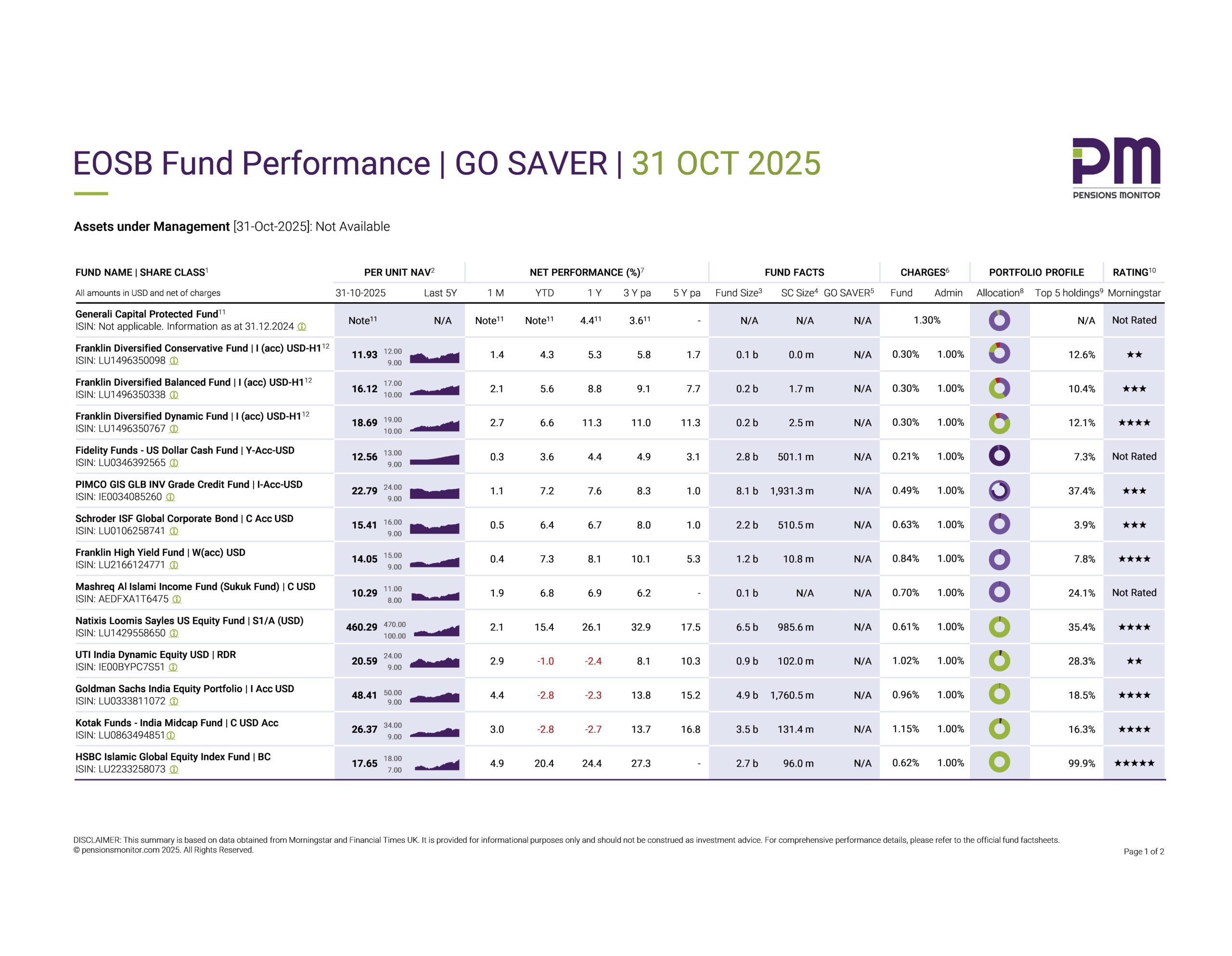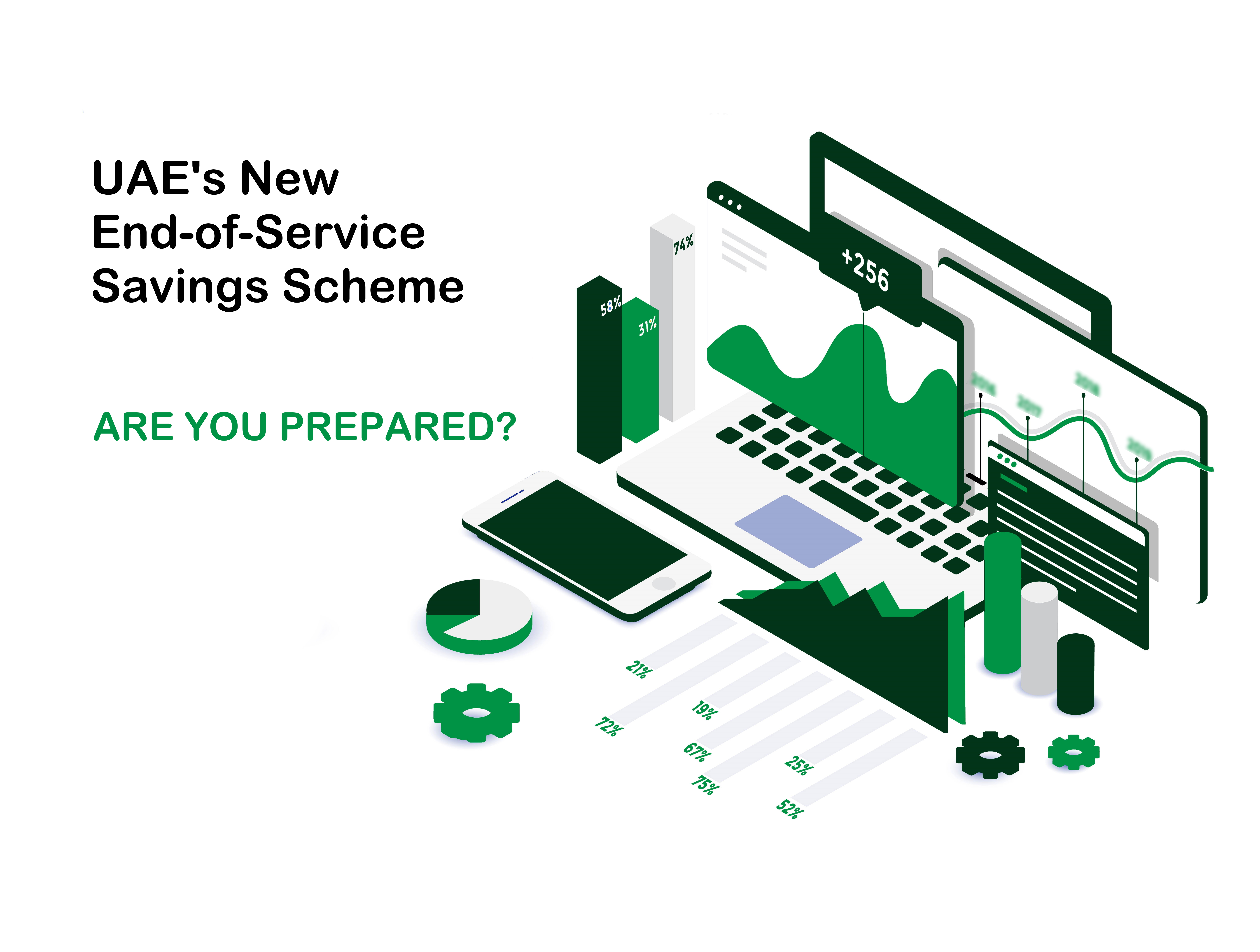
In October 2023, the UAE Cabinet announced a new alternative to the current End of Service Benefits (EoSB) system popularly known as indemnity. Let’s coin the new alternative as End of Service Savings (EoSS).
The difference?
Simply put, the current EoSB system has defined benefits where a definite amount is paid to employees based on the number of days in employment multiplied by the last basic daily salary.
Conceptually, this was put in place to provide expatriate employees that often reside (and work) abroad for years together with a pension of sorts, a lumpsum amount that they could take home to enjoy retirement since they miss out on their own country’s pension or social security system.
The current EoSB system worked (and still works) quite well. However, there are a number of significant drawbacks. For instance:
- On companies’ balance sheets EoSB dues to employees accrues as a liability that is not funded. Meaning if a company goes bankrupt, employees not only lose their jobs, they might also not receive their EoSB.
- Companies in crisis find it difficult to reduce headcount, as upon letting an employee go, the payment of the accrued EoSB becomes legally due. This extra cash outflow could push companies in crisis over the edge.
- Unscrupulous employers might find ways to let a company go bankrupt, thus avoiding the payment of EoSB to their employees.
- Employees do not benefit from any long-term capital growth from money that is technically theirs having accrued over the years of employment.
As such, indemnity schemes have lost appeal and most countries globally have embraced Defined Contribution (DC) schemes instead. In DC schemes, employers (and sometimes employees) pay in cash, monthly contributions for each employee into an investment fund. Employees can typically select the investment options for allocation of their funds. However, these funds are “locked” and cannot be withdrawn during the period of employment, except in events such as retirement, separation from employment and death.
The new alternative EoSS system introduced vide UAE Federal Cabinet Resolution No. (96) of 2023 is a similar savings scheme with capital preservation at heart while also giving employees an upside potential from investment returns. EoSS calls for monthly payments by employers (‘basic contributions’) and optional payments by employees (‘voluntary contributions’) into approved investment funds, subject to some limitations.
What does this mean for employees?
Unlike the current EoSB scheme where employees can calculate a definitive take-home amount, in EoSS the value of one’s funds or savings is uncertain and depends entirely on the fund allocation strategy that will now squarely fall on employees within certain parameters. There is expected to be a broad range of funds on offer in the UAE with different risk profiles – equity funds, bond funds, money market funds, tracker funds, sustainability funds, managed funds, exchange-traded funds, Shariah compliant funds and capital guarantee options. The general rule of thumb being higher the risk, higher the return and vice versa.

Let’s look at equity or stocks that are a relatively lucrative investment. Standard & Poor’s stock market index was 1,441 in 2000 and stands at 5,460 now. What does that mean? Simple. If you had invested USD 10,000 in 2000, you would have investments worth USD 38,860 today, averaging a return of 6% per annum over 24 years.
So, the value of one’s savings will depend entirely on how their funds are allocated – a new space for most people.
What are employers to expect?
Technically speaking, the monthly P/L charge per employee remains the same however, EoSS requires monthly cash outflows with penalties for late payments vs. a balance sheet provision under EoSB.
EoSS is also expected to significantly increase the administrative burden and expenses for employers in having to execute monthly EoSS transactions with full transparency for employees.
That said, EoSS is a strategic investment in the workforce and a step towards boosting employee morale and retaining talent.
So when does EoSS start in the UAE?
While the EoSS regulation was announced late last year, the infrastructure for implementation of the scheme is not yet in place but market participants have been actively working on developing funds and administration capabilities to launch their EoSS products in due course.
Pensions Monitor is closely monitoring this space.
Further, EoSS is a voluntary alternative for now with decision-making left to the employers as to:
(a) if transition is appropriate; and
(b) which employees to enrol into EoSS for whom participation then becomes mandatory.
So a trial period of sorts before a full transition comes around given that EoSS is not entirely new in UAE and in many respects is similar to DIFC’s Employee Workplace Savings (DEWS) scheme that was introduced in February 2020.
Follow Pensions Monitor for the latest news and developments on EoSS in the UAE.
